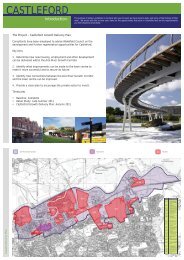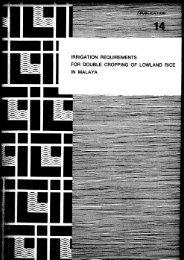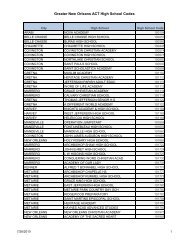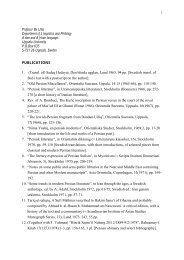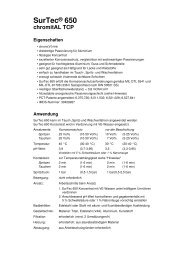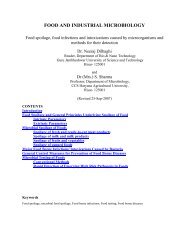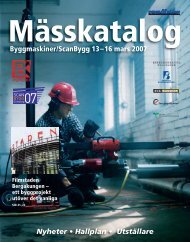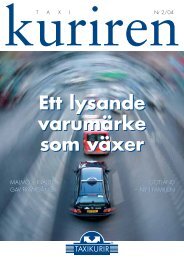On the Future of Indigenous Traditions - Munin
On the Future of Indigenous Traditions - Munin
On the Future of Indigenous Traditions - Munin
Create successful ePaper yourself
Turn your PDF publications into a flip-book with our unique Google optimized e-Paper software.
CSEMP which covered 25 projects in three<br />
different states, one <strong>of</strong> <strong>the</strong> states being<br />
Jharkhand<br />
Full phase <strong>of</strong> <strong>the</strong> Parej East project as one <strong>of</strong><br />
CSEMP in Hazaribag in Jharkhand.<br />
Here it is <strong>the</strong> Central Coalfields Ltd. (CCL) <strong>the</strong><br />
subsidiary <strong>of</strong> CIL that operates this project<br />
Total land acquired in <strong>the</strong>se 25 projects: 1827 ha Land Acquired for Parej East project: 237 ha<br />
Total number <strong>of</strong> persons affected by <strong>the</strong> project : In Parej East <strong>the</strong> total number <strong>of</strong> people affected:<br />
17632<br />
1172<br />
Total number <strong>of</strong> Tribal persons affected are: 4619 In Parej East <strong>the</strong>y are : 487*<br />
Total population <strong>of</strong> <strong>the</strong>se area are : 185811 In Parej East <strong>the</strong> total population is: 2913<br />
* These figures are misleading because <strong>the</strong> project actually affects communities in 11 villages and from<br />
this figures one is made to believe that <strong>the</strong> number <strong>of</strong> Adivasis is very small. The figures can be<br />
distorted; however <strong>the</strong> project fails to show that <strong>the</strong> damage is not just contained in Parej East alone.<br />
Peraj village is one <strong>of</strong> <strong>the</strong> 11 villages and <strong>the</strong>ir lands are covered in this project. It had intensified <strong>the</strong><br />
problem fur<strong>the</strong>r which is talked about in <strong>the</strong> study done by CASS.<br />
I would like to state an example, from my two and a half years involvement with <strong>the</strong><br />
project affected people during <strong>the</strong> first phase <strong>of</strong> <strong>the</strong> project. This was in direct<br />
confrontation with <strong>the</strong> project authorities; one can very clearly see how it is when<br />
Adivasis lose control over <strong>the</strong>ir land and livelihood resources. I would like to quote a<br />
small portion from my field notes used in this study: 72<br />
It is 5 years since <strong>the</strong> 9 Turi families have been displaced. Recently, Rameshwer and<br />
Bisheshwer went to <strong>the</strong> Project Officer (PO) Mr Gopal Singh <strong>of</strong> East Parej at his residence<br />
which is just adjacent to <strong>the</strong>irs, to share <strong>the</strong>ir grievances. The PO got annoyed with <strong>the</strong>m and<br />
shouted at <strong>the</strong>m saying “I don’t know who you are!” The PO also got angry with his driver for<br />
allowing such people to meet him. But when Rameshwer wasn’t displaced and he was on his<br />
land, <strong>the</strong>n <strong>the</strong> CCL went pleading to <strong>the</strong>m for land. There was Mr MP Mishra ano<strong>the</strong>r General<br />
Manager in 1996 who told us, “today, at least we are talking to <strong>the</strong>m”. 73<br />
After <strong>the</strong> land is taken from <strong>the</strong> Adivasis for <strong>the</strong> project <strong>the</strong>y have to comply to <strong>the</strong><br />
rules <strong>of</strong> <strong>the</strong> government in all levels:<br />
The Government’s attitude has also been pro-company. Take <strong>the</strong> example <strong>of</strong> au<strong>the</strong>ntication <strong>of</strong><br />
land paper/land titles. <strong>On</strong>ce <strong>the</strong> land is given on lease, <strong>the</strong> government refuses to au<strong>the</strong>nticate<br />
land. If a man whose name is on <strong>the</strong> land paper has died, his heir has to get a succession<br />
certificate which is a lengthy court process. <strong>On</strong> <strong>the</strong> o<strong>the</strong>r hand, in <strong>the</strong> case <strong>of</strong> Borwa tola<br />
which did not shift or want rehabilitation, <strong>the</strong> company got <strong>the</strong> local administration to bring<br />
<strong>the</strong> police and evict <strong>the</strong> people, and <strong>the</strong> reason <strong>the</strong> Deputy Commissioner gave was that World<br />
72 Bineet Mundu, “India: Breaking <strong>the</strong> Trust” Case Study on <strong>Indigenous</strong> Peoples, Extractive Industries<br />
and <strong>the</strong> World Bank – Presented at <strong>the</strong> Workshop in Exeter College in <strong>the</strong> University <strong>of</strong> Oxford – UK,<br />
held on <strong>the</strong> 14 th - 15 th April 2003.<br />
http://www.forestpeoples.org/documents/prv_sector/eir/eir_internat_wshop_india_case_eng_apr03.pdf<br />
73 Ibid. 8<br />
52



